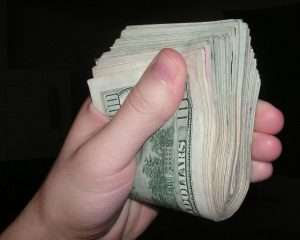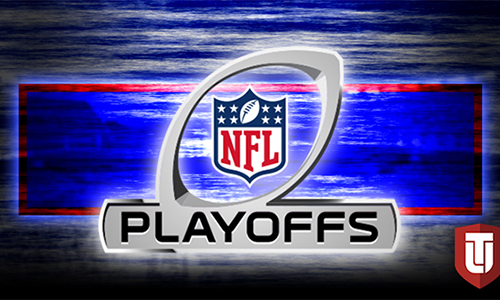NFL Playoffs (and Season) Were Bad for Small Bookies, Too
Last month, I wrote an article about an ESPN.com report that Las Vegas sportsbooks were getting pummeled during the NFL playoffs. As it turns out, it wasn’t just the big sports betting houses that were getting their asses handed to them. It was the small, illegal, local bookies, as well. According to Deadspin’s J. Matheli, the entire 2016-2017 NFL season was rough.
Now, before we start, we’re not going start feeling all sorry for bookies. As Matheli so eloquently puts it, “….it’s hard to feel sorry for a guy whose business model is contingent on fathers drunkenly betting the family’s Christmas fund on the Cleveland Browns.” It is still interesting, though.
 An unnamed West Coast bookie who Matheli spoke with said that in any given football season, about 10 percent of his customers finish as winning bettors. For the recently ended season, he estimates, that number more than doubled. Because of that, this particular bookie made about 10 percent less money than he did last year. And since football betting is the most significant portion of his business (three-quarters), that’s not pocket change.
An unnamed West Coast bookie who Matheli spoke with said that in any given football season, about 10 percent of his customers finish as winning bettors. For the recently ended season, he estimates, that number more than doubled. Because of that, this particular bookie made about 10 percent less money than he did last year. And since football betting is the most significant portion of his business (three-quarters), that’s not pocket change.
A bookie in the Midwest blamed the Vegas sportsbooks for “putting out wrong numbers.”
“They don’t know what the hell they’re talking about,” he added.
What he means by this is that independent, local bookies don’t make the lines themselves. They simply use ones put out by the Las Vegas sportsbooks. Thus, they are completely dependent on said sportsbooks for creating proper lines. This bookie felt the lines were poorly generated all season.
“Favorites and overs, favorites and overs,” he told Matheli. “Patriots and Atlanta. The Steelers. The typical teams will kill you.”
Walter Cherepinsky, creator of WalterFootball.com, concurred, saying, “Horrible teams like the Browns, 49ers, and Rams failed to cover on a weekly basis because the spreads were too low. [Vegas sportsbooks] were too slow to make adjustments.”
I’m no sports betting expert, but allow me to try to explain what they are talking about to those of you who know even less than I do about the subject matter. Based on my rather novice understanding of sports betting, the public tends to like to bet on popular, highly favored teams and the overs. Why? People are more familiar with the popular, highly favored teams and it is much easier mentally to cheer for more scoring in a game (to hit the over) than to cheer for defensive stops.
This past season, those big spreads weren’t big enough. The shitty teams like the above mentioned Rams, 49ers, and Browns were so shitty that they couldn’t even cover huge spreads. And when the popular teams keep covering, bettors keep winning, and bookies keep losing.
Cherepinsky analyzed the betting data and discovered the bookies’ anecdotal evidence stood up. He found that during the 2016-2017 season, teams favored by a touchdown – six points – or more covered the spread (that is, won by more points than the spread) about 65 percent of the time, the highest rate in more than 25 years.
He added, “From 1989 to 2016, favorites of six or more have won outright 77.5 percent of the time, but this year they were [87.7 percent], the highest percentage since at least 1989. When favorites of six or more win outright, teasers hit, and that means the books lose.”
A teaser is a bet made on two or more teams in which the bettor “teases,” or alters, a spread up or down. The bettor must win all games of the teaser to win the bet. For example, let’s say Green Bay was a 4-point favorite in a game and Minnesota was a 3-point underdog. Someone who wanted to bet on both teams might tease each line 6 points in their favor to make Green Bay a 2-point underdog and Minnesota an even bigger, 9-point underdog, theoretically making the bets easier to win.
Naturally, if someone teases the line of a heavy favorite, that favorite becomes just a slight favorite (or an even bet). And when they are winning outright (that is, straight-up winning the actual football games, point spreads be damned), those teasers win, too.
In the playoffs, when the lines aren’t well developed, it can spell disaster for the bookies because there are fewer games per week and thus more money concentrated on the games that the bettors win. The playoffs were particularly bad for the sports books and bookies this year. In the divisional round (the West Coast bookie said Wildcard weekend, but I believe he misspoke), three of the four favorites won; good for bettors, bad for bookies. And the one underdog that won – Green Bay – was a team the public loves putting money on.
Additionally, the West Coast bookie told Matheli that there was a drop in interest in the NFL this season, resulting in less business for him. He actually related it to the troubles of daily fantasy sports. Bonus poker reference coming!
“Last year everyone was playing so much fantasy sports, kind of like when Moneymaker won the World Series of Poker, and everybody fucking played poker,” he told Matheli. “The FanDuel/DraftKings scandal probably hurt. People who weren’t very good anyway saw that and said ‘fuck it.’”
As I have said in multiple articles, a sizeable portion of the NFL’s viewer base is made up of fantasy football players who wouldn’t otherwise care to watch the games. That the NFL still wants to make us think that it doesn’t like fantasy football or sports betting is ludicrous.
The bookie agrees, telling Deadspin, “Lots of people watching [the NFL] weren’t big sports fans, but were watching for their fantasy players. As much as the fantasy sports guys say it’s not gambling, it’s fucking gambling. And when those guys didn’t stick around, they stopped playing with us, too. Some of it could be Colin Kaepernick and his nonsense, but I doubt it.”

















COMMENTS